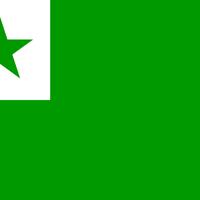En kafejo
EN KAFEJO
Ana kaj Marko longe parolis antaŭ la lernejo.
Poste ili ĝoje iris tra la strato.
Estis varma tago.
Ili vidis kafejon kaj en ĝi kukojn.
-Ni eniru kaj manĝu - diris Marko.
Ĉu vi havas sufiĉan monon?
-Kompreneble, mi havas cent kunaojn. -Ho, vi estas riĉa!
La kelnero alportis multajn kukojn.
Ili manĝis kaj post la manĝo la kelnero denove venis.
Marko serĉis en unu loko ... serĉis en alia.
Lia vizaĝo estis malĝoja.
Fine li diris per malforta voĉo: - Mi ne havas monon.
Kio okazis poste?
Ĉu vi scias?

